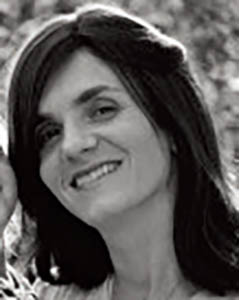
This past Motzei Shabbat, I told my husband that I think we live in the safest place in the world.
It was right after havdala, and I had just turned on my cell phone and discovered that while we were sitting and enjoying our Friday night dinner with our children, there had been a shooting in the baggage claim area of the Fort Lauderdale airport, an airport that my husband and I had flown through with our family just the week before.
My husband answered me, “I’m not sure this is the safest place in the world, but I do know that if something happened to me here, it would be at the top of the headlines for a few days, and people would care.”
And then, on Sunday afternoon, there was a terrorist attack a half hour away, in Jerusalem. And there were the headlines: ”Four killed as truck rams into IDF soldiers.”
My heart sank. After 10 brutal months of living in fear, from October through July of last year, the thought of returning to the intensity of those days was overwhelming. Those were months when every day was accompanied by a range of complex emotions that collectively took their toll, even as they emboldened us. I told my husband, “I am not ready to go back there,” and so I didn’t, and instead I went back to preparing food for the end of the fast.
About 15 minutes before the fast was over, my husband, an ER doctor, got a call from a local ambulance volunteer who informed him that one of the murdered soldiers was from Alon Shvut. My husband was asked to be present as various family members were informed.
I couldn’t breathe. I had not allowed myself to entertain the possibility that we would know one of the soldiers. After all, Alon Shvut is only made up of 800 families, and we were already directly affected by tragedy three times in the past year, with the murders of Nechemia Lavi, Yaakov Don and Eliav Gellman. What are the chances?
But apparently, statistics are not the decisive factor when it comes to these things. God is. And, once again, we are forced to humbly admit that we don’t understand His ways.
Erez Orbach, Hy”d, was the son of our handyman and of our seamstress. I daven behind his grandmother every week in shul. His grandfather has helped us many times with things in our home. Because of medical issues, Erez was exempt from army service, but he fought to be accepted and to become an officer so that he could serve his country. And now he gave his life while wearing its uniform.
His great-grandmother lost a son in the Yom Kippur War, a grandson in Lebanon in 1993, and now a great-grandson in an act of terror against soldiers. Three generations of family members who died on behalf of our country and our people.
This past Friday I attended a shiur by Rav Yoni Grossman on Sefer Bereishit. He discussed a comment by the Ibn Ezra on the end of Parshat Noach, in which he writes that Terach was traveling to Canaan only because Avraham had already received the command from Hashem (which appears later in the text at the beginning of Parshat Lech Lecha) to travel there, and Terach wanted to join his son.
Terach was taken by the fact that a god had spoken to Avraham, and thought life would be better for him if he went along voluntarily for the journey—but he never made it. He set out for Canaan, but he got stuck in Charan.
Rav Yoni made the point that the only reason we are really in Eretz Yisrael is because Hashem commanded us to be here. Avraham went to Israel not because he was guaranteed anything there, but only because Hashem told him to go: “’בראשית יב:ד) ”וילך אברם כאשר דבר אליו ה)
If we set out for Israel for any alternative reason, as Terach did, we can easily be distracted. There is so much that “chutz la-aretz” has to offer—culturally, educationally, career-wise, lifestyle—but Hashem commanded Avraham to come here.
And, ultimately, that is why we are here. As much as I would sometimes like to convince myself that, in our unstable world, maybe Israel really is the safest place, it sure doesn’t always feel like it. People I know aren’t murdered in New York or Florida because they are Jews, but people I know are murdered here for that very reason.
On Monday morning we found ourselves once again driving to the military cemetery in Kfar Etzion, along with our entire community. Once again we listened to tearful eulogies, watched teenagers sob and hold each other, and thought about how absurd it is that this experience has become normal.
And once again we heard the strength in the words of the people who spoke and who declared that we will not give up, we will not succumb and we will not be afraid. We will continue to do our best to light up places of darkness, even when they are so, so dark.
This is our land. We are here because God told us He wants us here. Sometimes (or maybe all the time) that is reason enough.
By Shayna Goldberg
Shayna Goldberg made aliyah to Alon Shvut from Bergenfield in July 2011 with her husband, Judah (a Teaneck native), and their children. She previously taught Halacha at Ma’ayanot Yeshiva High School for Girls and served as a yoetzet halacha for Congregation Rinat Yisrael. She can be reached at shayna.goldberg@gmail.com.








